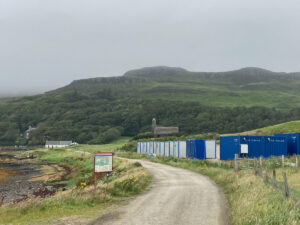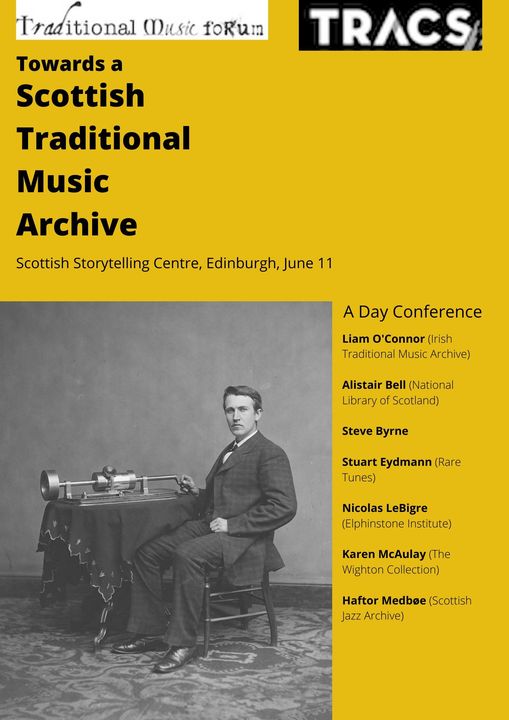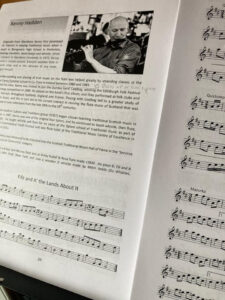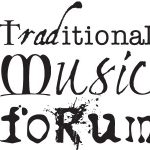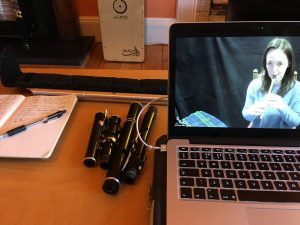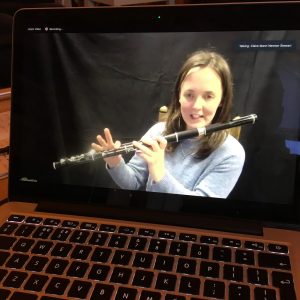Scottish Flute Weekend 16-18 Nov 2001: Twenty Years of Scottish Traditional Flute
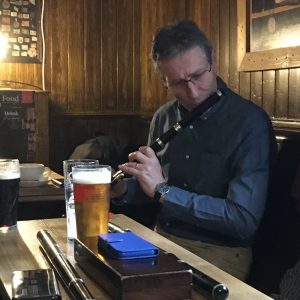
Malcolm Reavell in Ma Cameron’s snug, Aberdeen. (c) Gordon Turnbull
November 2021 marked twenty years since Boxwood Aberdeen took place, a weekend that sowed the seeds for FluteFling and inspired many others to further explore the flute in Scottish traditional music contexts.
Organised by Malcolm Reavell for Scottish Culture and Traditions, here he describes the background to the event, which was possibly the largest such gathering in Scotland.
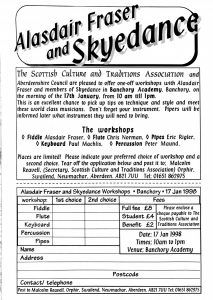
Publicity for Skyedance performing and teaching in Banchory
In 1997, representing Scottish Culture & Traditions organisation (SC&T) I contacted Duncan Hendry who was at the time managing the Aberdeen Alternative Festival (now at the Edinburgh Festival Theatre) to see if he would help us arrange to get Alasdair Fraser’s band Skyedance to run a day of workshops for traditional musicians. The lineup at that time was Alasdair on fiddle, Eric Rigler on pipes, Peter Maund on percussion, Paul Machlis on piano, and as American/ Canadian flute player Chris Norman had joined the band, we could have flute a workshop as well.
The workshop was held on a snowy January day in Banchory Academy. Chris Norman had previously held workshops at Celtic Connections in Glasgow, attended by just a couple of people, so when he walked into the room, he was pleasantly surprised to be confronted by about a dozen flute players.

Flute players in Banchory. Chris Norman is front row, in white. Malcolm Reavell to the right of him.
Chris advertised the Boxwood week he ran, and so that was where I went for my holidays the next two years – Lunenburg, Nova Scotia. It was an inspiring event, and I really wanted to do something like this in Scotland, and I got the chance in 2001. Chris got in touch about coming over to Scotland, I jumped at the chance to try and organise something.
I thought it would be good to try out the format Chris used for Boxwood with three tutors covering different styles and traditions. As well as Chris I invited Eddie McGuire whose reputation as composer as well as flute player appealed to classical flute players, and from Limerick, Niall Keegan, who was pushing the boundaries of traditional Irish flute playing.

Flyer for the Boxwood Aberdeen Weekend
It was going to cost a bit of money to put on the event. We could not run it for a whole week as Chris did in Lunenburg, but a weekend seemed achievable.
At this time I was still working shifts as an aircraft engineer, so I had days off during the week which I could devote to SC&T (in fact SC&T took up most of my spare time anyway).
I investigated Scottish Arts Council funding and luckily Dave Francis pointed me in the direction of a new funding stream for which few people had applied.
I submitted the grant application and budgeted for about half of the amount I put in the application (that’s kind of normal for such applications). The Scottish Arts Council approved the whole amount. This was not supposed to happen! I had to then revise the programme and remove all the cost saving I had incorporated to use up all the money we were getting (you can’t give it back – you must spend it!).
So… venues for workshops, evening concerts, sessions, accommodation for artists, publicity, leaflets, press releases, flyers, catering,… the machine was set in motion. It wasn’t all plain sailing, I had several weeks, and a few frantic days, sorting out last minute international work permits with the UK Home Office.
Organising it under the SC&T banner gave us access to volunteer resources of the SC&T committee and helpers. The Elphinstone Institute under the auspices of Dr Ian Russell became involved, and Ian gave a talk on the flute bands of NE Scotland. (a photograph of one of the flute bands was used by Chris on his album cover for The Caledonian Flute).
Kenny Hadden helped put out the word to all the flute players we could find in Scotland, and by some magic, we managed to attract participants from the south of England, and one lady (who I had met at Chris’s Boxwood event in Lunenburg) that decided to come all the way from Wisconsin in the US.
The workshops took place in the Aberdeen Foyer. We had an evening concert in Cowdray Hall, and one in the Lemon Tree, and Friday night session in The Globe.
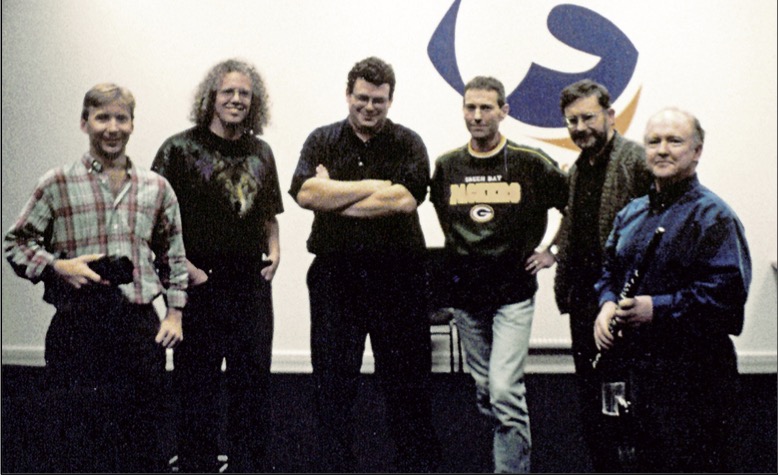
(Left to Right) Chris Norman, Robin Bullock, Niall Keegan, Malcolm Reavell, Dr Ian Russell, Eddie Maguire
The weekend was the first time this number of traditional flute players had gathered in Scotland and acted as inspiration to continue from there. A young Calum Stewart was even in the audience, (although he told me recently, at the time, he didn’t play much flute).
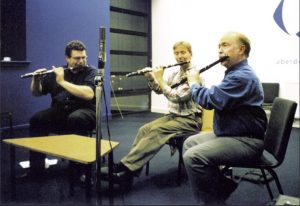
Niall Keegan, Chris Norman and Eddie Maguire performing
I can’t remember how many participants we had at the weekend, (data protection means I no longer have access to enrolment details), but I seem to have the number 45 in my head.
As for names… well, have fun looking through some of these pictures and try putting names to faces, and a video of the weekend was made by Dr Ian Russell and we hope to make some of it available in the future.

Eddie Maguire and the Whistlebinkies with the participants. Notice the animated music stand. (c) Malcolm Reavell
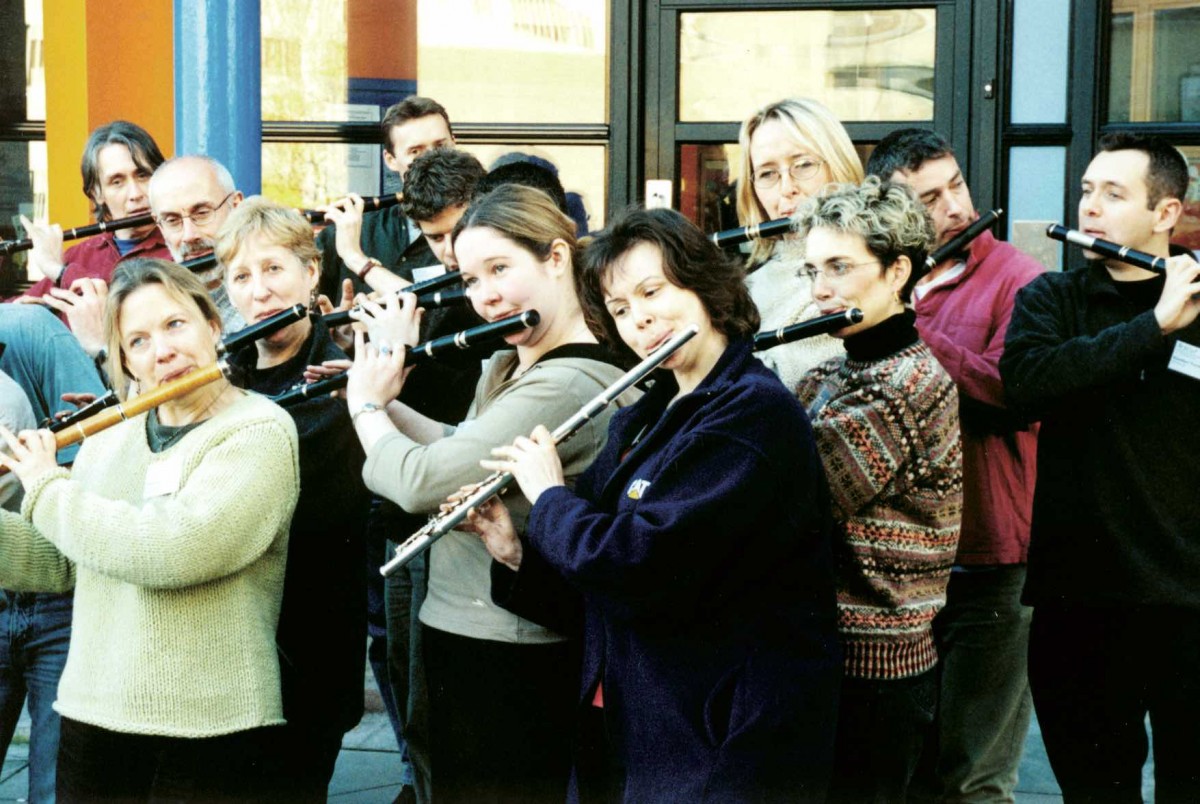
Aberdeen Press and Journal. Some weel kent faces here: Rebecca Knorr (left) and a young Mhairi Hall centre left, Ann Ward just behind them, a young Calum Stewart (partly hidden behind Mhairi), Munro Gauld and Gordon Turnbull (back right). The lady in the Fairisle pattern sweater is Ann Huntoon from Wisconsin. Apologies for not being able to recall other names at present.
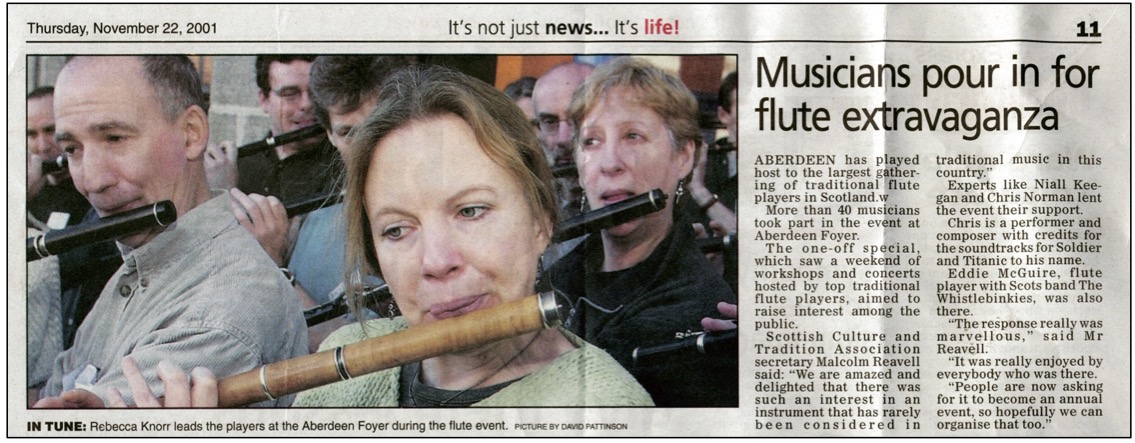
Aberdeen City Evening Express a few days later: Kenny Hadden, Rebecca Knorr and Ann Ward front and centre.
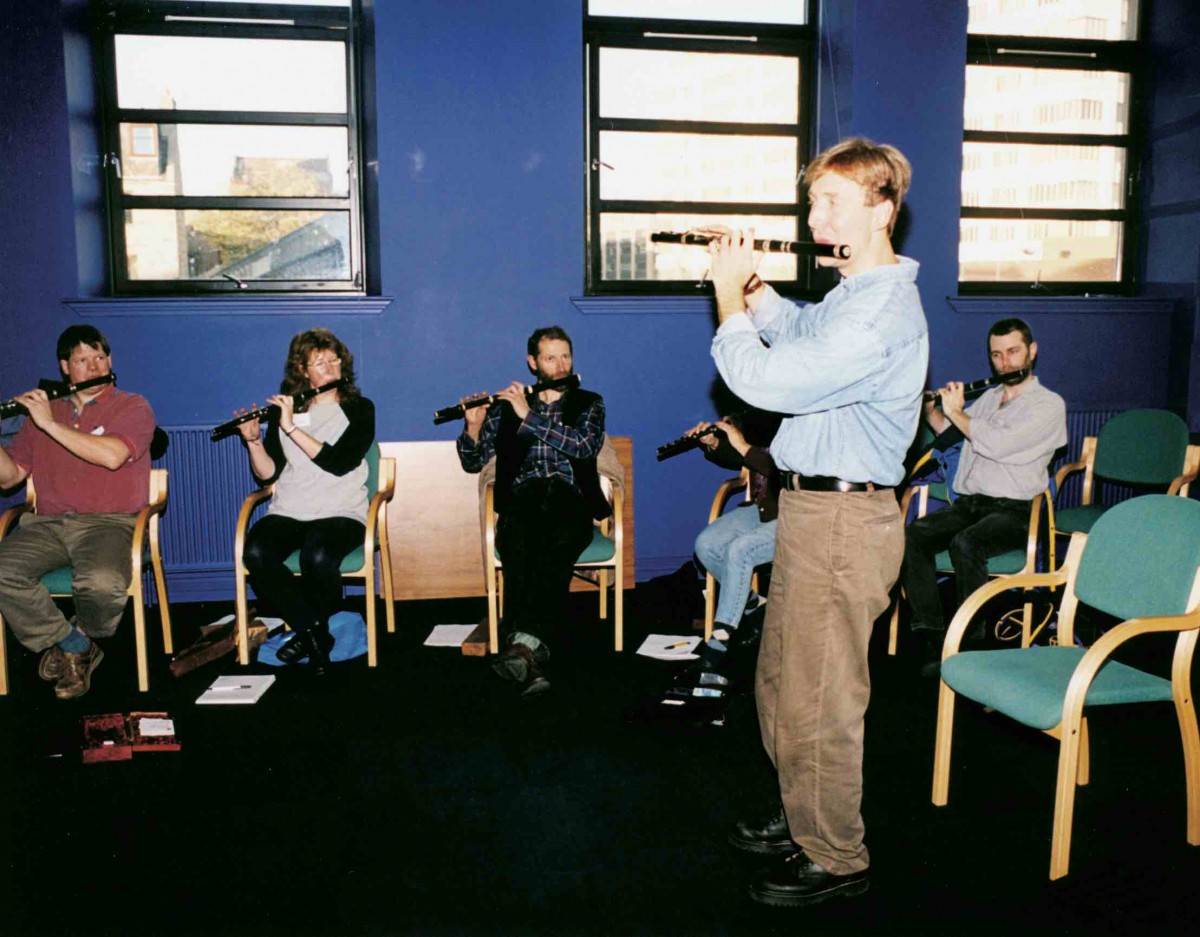
A workshop with Chris Norman. Pete Saunders back, right.

Some more faces to spot, this time with Eddie Maguire.
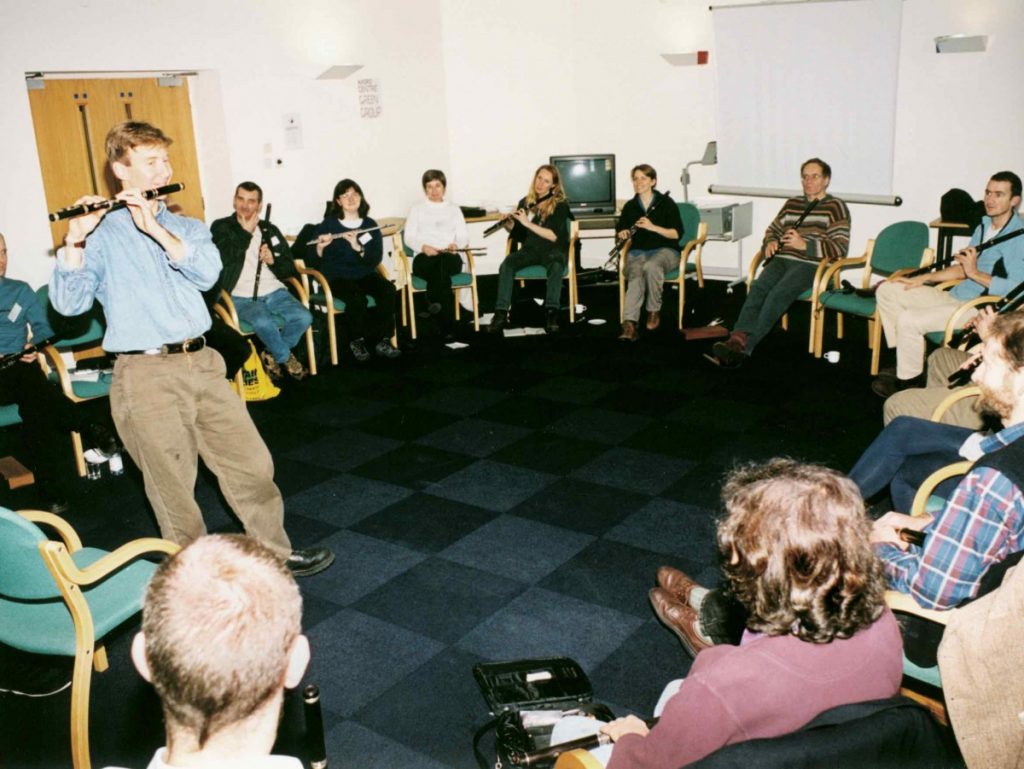
Chris Norman in a workshop
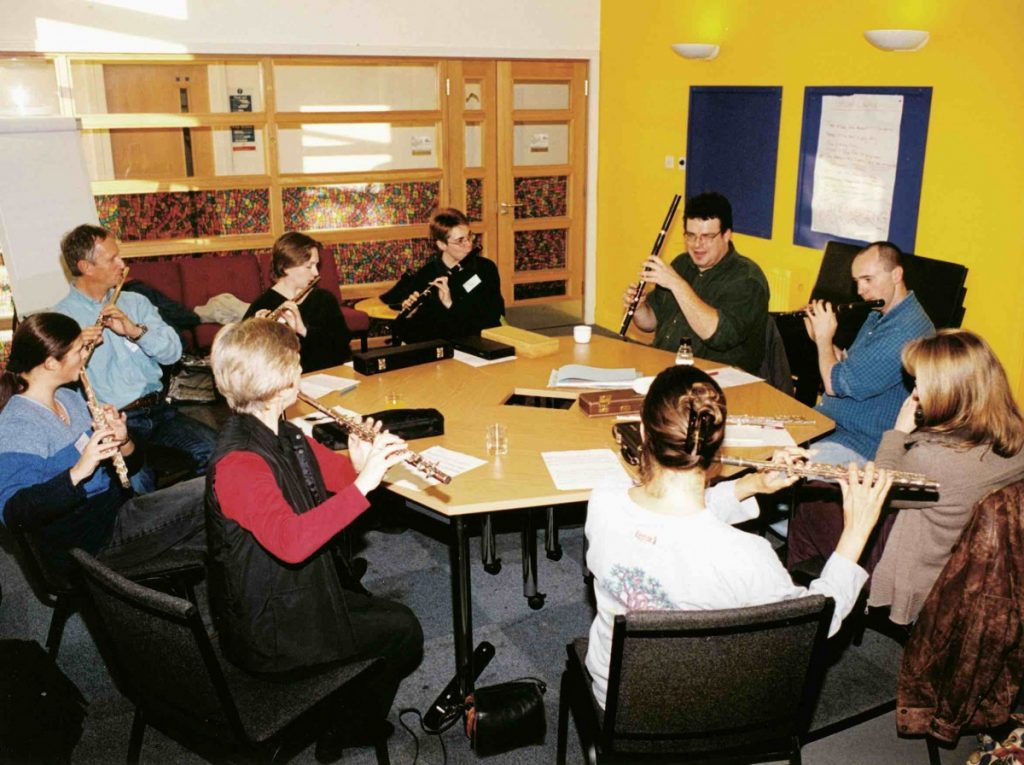
Niall Keegan with a group

The participants at the end of a full day animated and ready to listen to the three tutors.
(c) Malcolm Reavell 2021
